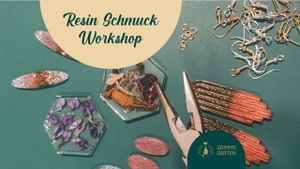2-Tage Kintsugi Workshop in Berlin
In the organizer's words:
In this 2-part workshop, participants will learn a modern version of the traditional "gold connection" known as Kintsugi, which was developed in Japan.
The method used in this workshop was developed specifically for this purpose. Materials and procedures are not taught in this form anywhere else.
Day 1 - Repair (4 hours):
- Introduction to the history and origin of Kintsugi
- Explanation of the wabi-sabi concept
- Comparison of traditional and modern methods
- Repairing shards with different adhesives
- Replacing missing areas with filling material
- Cleaning up broken and missing areas
The theoretical part deals with the history and origin of Kintsugi and the Wabi-Sabi concept. The difference between traditional and modern methods is explained and the materials of both methods are presented.
In the practical part, shards are repaired with different adhesives, missing areas are replaced with filling material, and breaks and imperfections are cleaned.
Day 2 - Finishing (4 hours):
- Presentation of urushi lacquer processing and maki-e lacquer painting
- Comparison of amber lacquer as a substitute for urushi
- Application of the Maki-e scattering technique on glued shards
- Cleaning and correcting the finished objects
The theoretical part introduces the history and method of urushi lacquer processing and explains the origin and methodology of maki-e lacquer painting as part of kintsugi finishing.
In the practical part, the traditional tools of Maki-e lacquer painting are presented and tried out. To refine the shards, amber lacquer is dyed with pigments in the traditional method, the resulting lacquer is applied to already glued shards and sprinkled with a selected metal pigment using the Maki-e scattering technique. Using objects that have already been finished, cleaning and correction are demonstrated up to the finished piece.
--
Please bring long-sleeved work clothes. Glue and varnish cannot be removed from clothing! Aprons, gloves and masks will be provided by me. In the workshop, balsam turpentine substitute and propanol (alcohol) will be used for cleaning. It is not advisable to take part in the workshop if you have known allergies to the vapors produced or if you are pregnant or breastfeeding.
This content has been machine translated.












